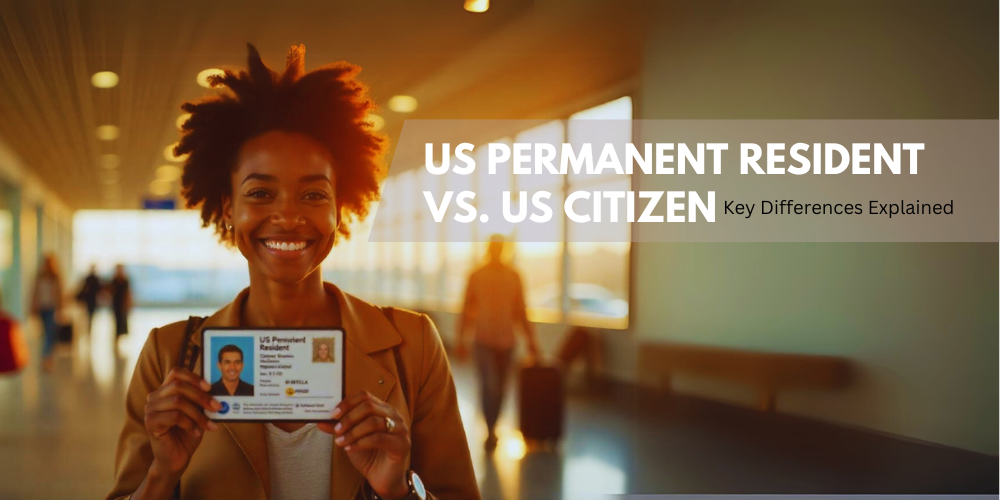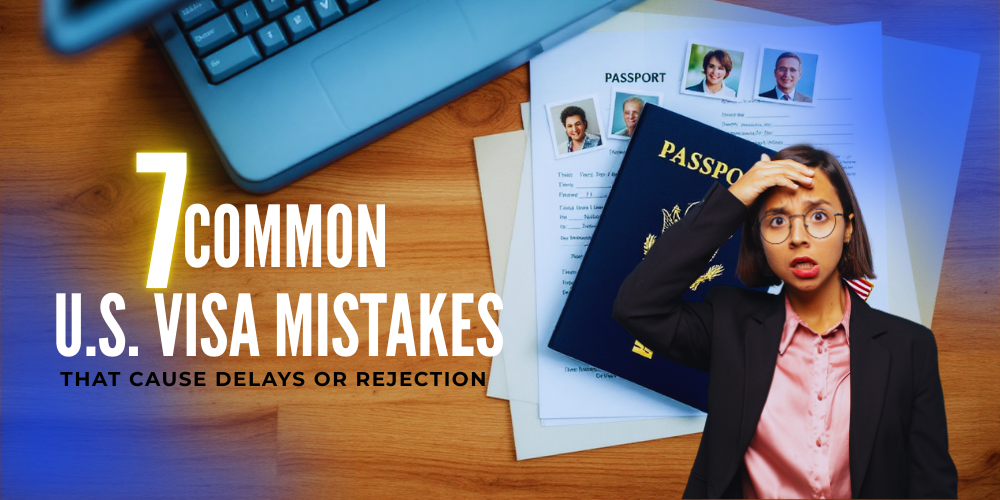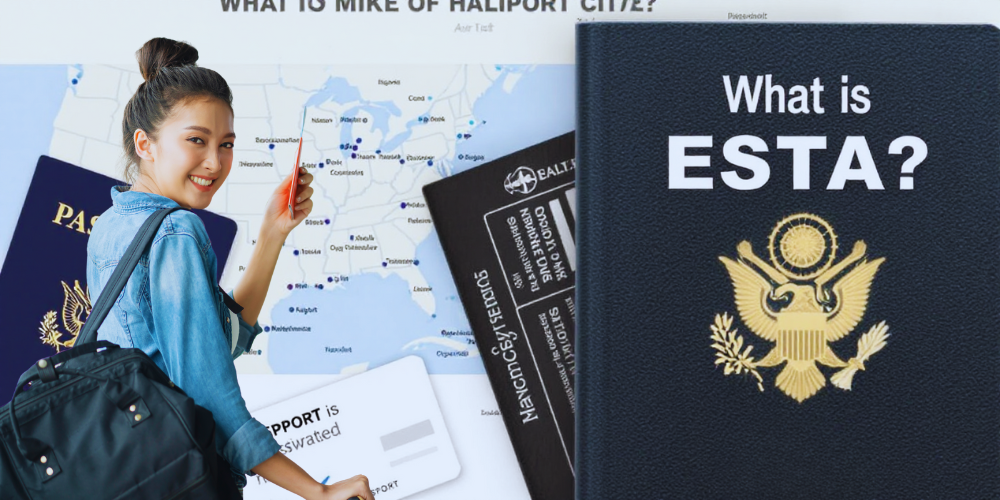--------- US Permanent Resident vs. US Citizen: Key Differences Explained
Apr 1, 2025

If you’re navigating the U.S. immigration system, you’ve probably heard the terms permanent resident and citizen tossed around a lot. And while they both refer to people legally allowed to live in the U.S., there are some significant differences between the two—differences that can affect everything from your rights and responsibilities to your ability to travel or sponsor family.
So, whether you’re a green card holder wondering if citizenship is your next step, or you’re just trying to understand the system better, this guide will break it all down in plain, honest language.
What Is a U.S. Permanent Resident?
A permanent resident—commonly known as a green card holder—is a non-U.S. citizen who has been granted the legal right to live and work in the United States indefinitely.
You get this status through:
- Family sponsorship (spouse, parent, sibling)
- Employment-based sponsorship
- Refugee or asylum programs
- The Diversity Visa (DV) lottery
- Certain special categories (e.g., abuse survivors, Afghan/Iraqi translators, etc.)
Green cards are typically valid for 10 years and must be renewed. Some conditional green cards (e.g., marriage-based) are valid for 2 years, and you have to file to remove conditions.
What Is a U.S. Citizen?
A U.S. citizen is someone who has full rights under U.S. law. You can be:
- Born in the U.S. (or its territories)
- Born abroad to U.S. citizen parents
- Or you can become a citizen through naturalization
Naturalization is the legal process that allows green card holders to apply for full U.S. citizenship after meeting certain requirements.
Now, Let’s Break Down the Key Differences
Understanding how these two statuses differ can help you make informed decisions, especially if you're thinking about applying for naturalization.
✅ 1. Right to Vote
Permanent Resident:
You cannot vote in federal elections (and in almost all state and local elections). Voting when you're not allowed can actually jeopardize your green card.
U.S. Citizen:
You can vote in all U.S. elections, including federal, state, and local. You can also run for public office in many cases.
Bottom line: If you want to have a say in how the country is run, becoming a citizen is a must.
✅ 2. Deportation Risk
Permanent Resident:
Yes, green card holders can be deported under certain circumstances, mostly for serious crimes (like drug trafficking, fraud, or domestic violence). Even a minor offense that’s a deportable crime under immigration law could put your status at risk.
U.S. Citizen:
You cannot be deported unless your citizenship was obtained through fraud (which is rare and must be proven in court).
Bottom line: Citizenship gives you a much stronger sense of security in the U.S.
✅ 3. Travel Freedom
Permanent Resident:
You can travel outside the U.S., but there are limits. If you stay abroad for more than 6 months, it could raise red flags. More than 12 months? You may be seen as having abandoned your residency.
You'll need a reentry permit for long absences.
U.S. Citizen:
You can travel freely and stay abroad as long as you want. You can also apply for a U.S. passport, which is one of the strongest in the world.
Bottom line: Citizens have far more flexibility with international travel.
✅ 4. Ability to Sponsor Family Members
Permanent Resident:
You can sponsor:
- Your spouse
- Your unmarried children
But you cannot sponsor your parents, siblings, or married children.
U.S. Citizen:
You can sponsor:
- Your spouse
- Children (married or unmarried)
- Your parents
- Your siblings
Citizens also usually get faster processing times for family petitions.
Bottom line: If bringing your close relatives to the U.S. is a priority, citizenship opens many more doors.
✅ 5. Eligibility for Government Jobs and Benefits
Permanent Resident:
You can work legally in the U.S., but some government jobs—especially in federal agencies or law enforcement—are only available to U.S. citizens.
Some public benefits, like Medicaid or SSI, may have restrictions for green card holders depending on how long you’ve been in the U.S.
U.S. Citizen:
You have access to all federal jobs and no limits on public benefits (if eligible based on income or disability).
Bottom line: Citizenship can mean more career opportunities and broader access to support programs.
✅ 6. U.S. Passport and Consular Protection
Permanent Resident:
You keep the passport of your home country. If you get in trouble abroad or need help, you have to rely on your country’s embassy, not the U.S.
U.S. Citizen:
You can get a U.S. passport and receive help from U.S. embassies and consulates around the world.
Bottom line: Citizens have stronger protection when traveling abroad.
✅ 7. Naturalization Requirement
Permanent Resident:
You're expected to maintain your status and follow certain rules (like renewing your green card and not committing deportable offenses). But you’re not required to become a citizen.
U.S. Citizen:
Once naturalized, you no longer need to renew anything or worry about losing your status (unless it was obtained fraudulently).
Bottom line: Citizenship gives you permanence, while permanent residency requires ongoing maintenance.
What Do Permanent Residents and Citizens Have in Common?
Even though there are differences, green card holders and citizens share a lot of the same rights, including:
✅ The ability to live and work in the U.S.
✅ Access to public education
✅ Protection under U.S. laws
✅ The right to own property, open bank accounts, and start businesses
✅ Pay U.S. taxes
So yes, green card holders live very similar lives to citizens, but without the full legal and political rights.
Should You Apply for Citizenship If You're a Green Card Holder?
This is a personal decision, but here are a few things to think about:
👍 Why You Might Want to Apply:
- You plan to live in the U.S. long-term
- You want to vote
- You want to bring your family here
- You don’t want to worry about losing your status or renewing a green card
- You want a U.S. passport for travel
👎 Why You Might Wait:
- Your home country doesn’t allow dual citizenship
- You’re not ready to renounce ties to another country
- You’re still learning English or studying for the civics test
- You’re unsure about the application cost ($760 as of 2025)
Good to know: You don’t have to give up your original citizenship unless your home country requires it. The U.S. allows dual citizenship.
The Naturalization Process at a Glance
If you’re eligible, here’s what the process generally looks like:
- Be a green card holder for 3 or 5 years
- Meet physical presence and residence requirements
- Show good moral character
- Submit Form N-400
- Attend a biometrics appointment
- Complete the interview and civics/English test
- Take the Oath of Allegiance
🕒 Average processing time: 6–12 months (though this can vary)
Final Thoughts: Which Status Is Right for You?
Permanent residents enjoy many of the benefits of life in the U.S., but they still have some limitations. Citizenship, on the other hand, is the full package, with added rights, freedoms, and protections.
If you're planning to build a long-term life in the U.S., pursuing citizenship is often the best move. But whether you're a green card holder or a naturalized citizen, you're part of a nation built on immigration, and both statuses play a vital role in shaping the country.
Still unsure about your next step? Drop your questions below—we’re here to help you figure it out.
Recent Articles

Top Digital Nomad Visas in 2026 (Portugal, Croatia, Estonia & More)
Remote work isn’t a trend anymore — it’s infrastructure. By 2026, governments aren’t just to

Seasonal Travel Planning: Spring in Europe (Visa Tips Included)
Spring—stretching from March through May—hits a sweet spot many travelers overlook. The continen

Best Schengen Countries to Visit with One Visa
A Schengen visa is one of the most powerful travel documents for exploring Europe. With a single app

ETIAS Explained: Europe’s New Travel Authorization System
Europe is shaking up short-stay travel, and if you’ve ever zipped across the continent visa-free,

7 Common U.S. Visa Mistakes That Cause Delays or Rejection
U.S. visa delays and refusals are rarely caused by a single dramatic mistake. More often, they stem

ESTA Explained: Who Needs It and How to Apply in 2026
The ESTA—short for Electronic System for Travel Authorization—is the quiet gatekeeper behind vis
Read More

Top Digital Nomad Visas in 2026 (Portugal, Croatia, Estonia & More)

Seasonal Travel Planning: Spring in Europe (Visa Tips Included)

Best Schengen Countries to Visit with One Visa

ETIAS Explained: Europe’s New Travel Authorization System

7 Common U.S. Visa Mistakes That Cause Delays or Rejection

ESTA Explained: Who Needs It and How to Apply in 2026

Welcome to the VisaTravel blog. We know that navigating the maze of visa applications and online forms can be as tricky as choosing the perfect travel playlist (which is all we want you worrying about anyway).
Throughout our years of experience, though, we’ve uncovered a mountain of knowledge which, via this blog, we’re sharing with you! Whether you're diving into the world of travel visas, wondering about the ESTA online hustle, or just trying to figure out the DS160 form, think of us as your online concierge, here to make the process easy and most of all, clear.
At this point in our global context, who has time for endless paperwork and confusing legal jargon? No one. That's why we're all about spilling the tea on online visa hacks, easier-to-work-with DS160 forms, and giving you tips on everything from tourist visas to immigration, to that last-minute ESTA online adventure.
So, just plug in a word you’re curious about on the search bar, and boom. We've got the tips, tricks, and insider info to help you (and anyone else you may be traveling with) get to your travel destination with the confidence of a seasoned traveler.
Now go explore!
 U.S. Visa
U.S. Visa
 Canada eTA
Canada eTA
 Schengen Visa
Schengen Visa
 New Zealand eTA
New Zealand eTA
 United Kingdom eTA
United Kingdom eTA
 Australia eVisitor
Australia eVisitor
 Vietnam eVisa
Vietnam eVisa
 Egypt eVisa
Egypt eVisa
 Singapore Arrival Card
Singapore Arrival Card
 Sri Lanka eVisa
Sri Lanka eVisa




